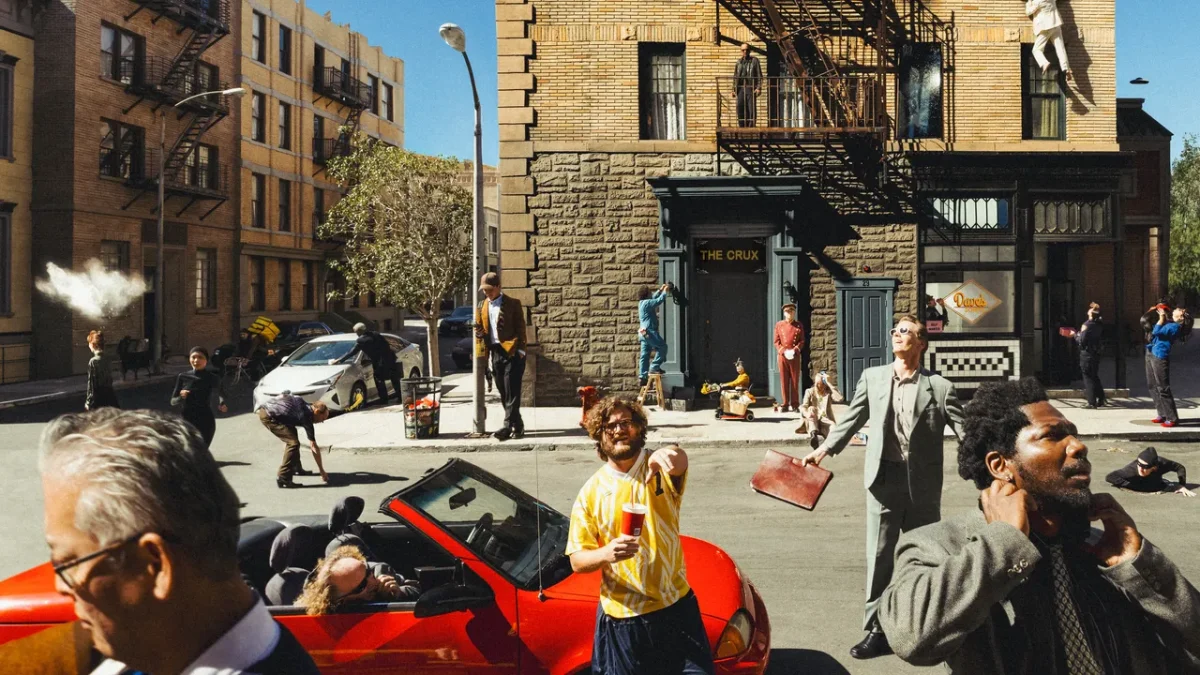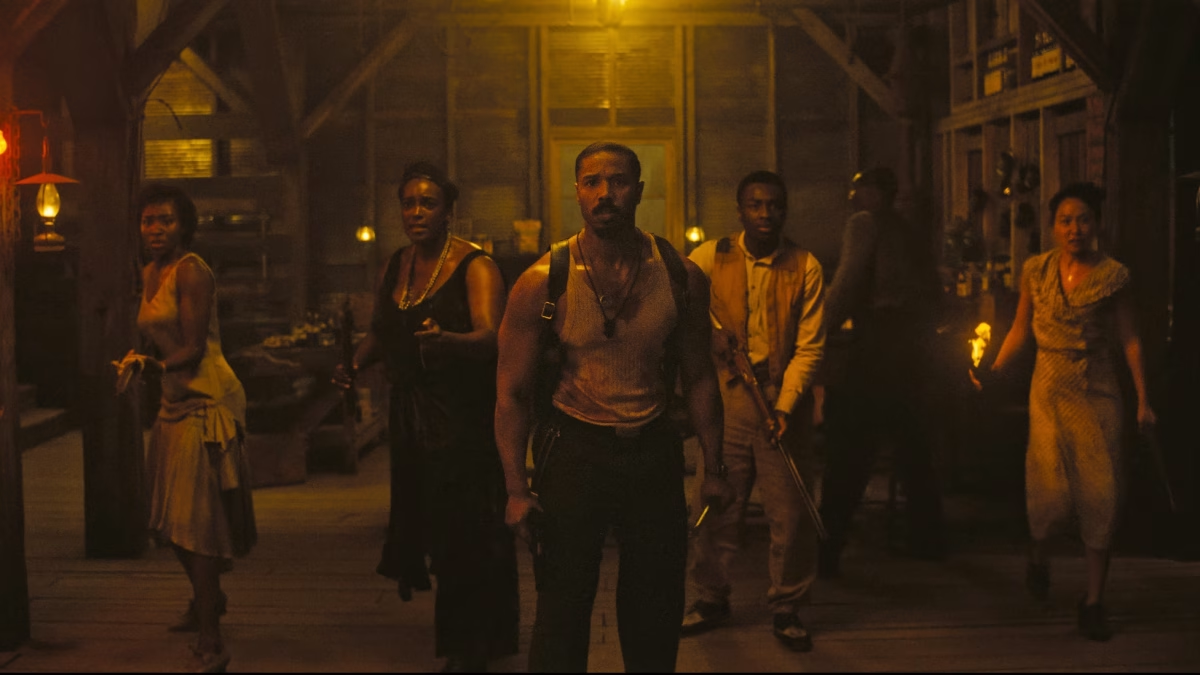Not many actors can boast the multitalented success that Joe Keery can — on top of his breakout role as Steve Harrington in “Stranger Things,” he began releasing music under Djo (pronounced “Joe”) in 2019. His previous work was the stuff of neopsychedelic visions — cold synths, bold production and vague lyrics all slid into the image of clean, cool dude that Keery projected as his musical alter-ego. The aesthetic paid off when “End of Beginning,” the sixth track of his second album “Decide,” went viral on TikTok and catapulted his monthly Spotify listeners to over 20 million.
“The Crux” breaks his sleek streak with an attempt at true sincerity. Rather than the synthetic beats that garnered over 144,000 clips on TikTok, this album embraces a different direction, promising “a hotel housing guests who are all, in one way or another, at crossroads in their life.” It sounds more intimate, and to a certain extent, it is — still, Djo brings his old production tricks to the table.
The first track, “Lonesome Is A State of Mind,” immediately asserts his new direction. Chirpy whistles guide the listener into the album, transitioning into gentle strumming followed by Keery describing day-to-day moments like driving his car. Keery sounds like a mumbly, lying teenager, and while his observations — “My future’s not what I thought / I think I thought it wrong” — are a bit simplistic, his boyish charm manages to come out on top.
His momentum carries into “Basic Being Basic,” a tongue-in-cheek critique of Tarantino fans and “cheugy-phobes.” He’s not breaking new ground, but the chewy synths and infectious beat make up for it entirely. If there’s one aspect of “The Crux” that redeems its frankly basic lyricism, it’s the sheer catchiness of each track — despite the album’s new set of instruments, Djo retains the irresistible rhythm that carried him through his last two albums.
To develop the rhythm, Djo demonstrates a particular preference for words — rather than writing lines that focus on conveying meaning, he chooses words that work best with the snappy beat. Sometimes, this culminates in a balanced verse, like the crispness of “Shuffle numbers, pointing fingers, ditching chats in different apps” in “Basic Being Basic.” But most of the time, it’s clear that Keery hasn’t shaken his convoluted crypticness, like with the line “One life living and a cat beguiled” in “Gap Tooth Smile.” It’s not distracting if you’re just enjoying the music, but it suggests that the album’s layered concept may have been a little too ambitious for his meandering lyricism.
Djo has never really been a storyteller — from the tracks alone, no one would be able to guess the album’s theme, and none of the perspectives break from Keery’s in a noticeable way. It’s a bit of a shame since he proves that he doesn’t need an ambitious concept to connect with the audience. The chorus of “Potion,” an idyllic ramble about finding true love, is simple but genuine: “I’ll try for all of my life / Just to find someone who leaves the light on for me.” Other times, emotion is sustained without any noteworthy lines — “Fly,” a song about metaphorically flying away from a relationship, achieves a warm and gauzy glow through its instrumentals alone. Djo’s misplaced emphasis ends up overshadowing his down-to-earth talents.
“The Crux” wears its inspirations on its sleeve, especially when it comes to emulating the rock ballads of the ‘70s. Songs like “Back On You,” with their shouty choruses and booming bass, present themselves as stadium-shakers from a bygone age. They’re still fairly catchy and well-produced, but it feels as though Djo has gotten carried away with recreating styles rather than finding his own.
It’s not a complete dealbreaker, even if later tracks like “Golden Line” tend to drag without providing the same intrigue as the first half of the album. However, “Charlie’s Garden” is a good example of breaking the mold. As Keery sings about his friend and co-star Charlie Heaton’s garden, he brings a personal angle to the Beatles-esque chorus. While it still feels extremely evocative of older singing styles, Djo adds a modern twist with his production effects — such as two voicemails that supplement the story — and shows that his use of inspiration doesn’t have to be uninspired.
There’s a lot of promise scattered throughout “The Crux.” Like the narrator in “Egg,” Djo is breaking out of his shell, a musically reborn man who refuses to let even his success define where to go. “The Crux” delivers music worth enthusiastically nodding along to, showcasing Keery’s production strengths while managing to overcome his lyrical weaknesses. It reflects the most authentic image of Djo we’ve seen yet — it’s flawed, but that makes it more human.
RATING: 3.5/5
















